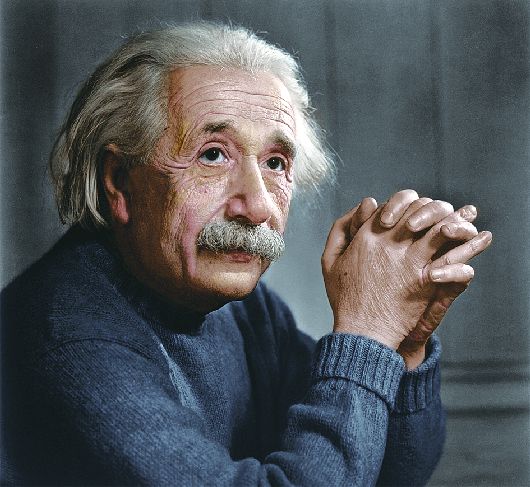(单词翻译:单击)
Einstein was born in Ulm, in southern Germany, in 1879, but grew up in Munich. Little in his early life suggested the greatness to come. Famously he didn’t learn to speak until he was three. In the 1890s, his father’s electrical business failing, the family moved to Milan, but Albert, by now a teenager, went to Switzerland to continue his education—though he failed his college entrance exams on the first try. In 1896 he gave up his German citizenship to avoid military conscription and entered the Zurich Polytechnic Institute on a four-year course designed to churn out high school science teachers. He was a bright but not outstanding student.
爱因斯坦1879年生于德国南部的乌尔姆,但在慕尼黑长大。他的早年生活几乎难以说明他将来会成为大人物。大家都知道,他到三岁才学会说话。19世纪90年代,他父亲的电器生意破产,举家迁往米兰,但这时候已经十来岁的阿尔伯特去了瑞士继续他的学业——虽然他一开始就没有通过大学入学考试。1896年,他放弃了德国籍,以免被征入伍,进入了苏黎世联邦工业大学,攻读旨在培养中学教师的四年制课程。他是一名聪明而又不突出的学生。
In 1900 he graduated and within a few months was beginning to contribute papers to Annalen der Physik. His very first paper, on the physics of fluids in drinking straws (of all things), appeared in the same issue as Planck’s quantum theory. From 1902 to 1904 he produced a series of papers on statistical mechanics only to discover that the quietly productive J. Willard Gibbs in Connecticut had done that work as well, in his Elementary Principles of Statistical Mechanics of 1901.
1900年,他从学校毕业,没过几个月就开始把论文投给《物理学年鉴》。他的第一篇论文论述(在那么多可写的东西中偏偏论述)吸管里流体的物理学,与普朗克的量子理论发表在同一期上。从1902年到1904年,他写出了一系列关于统计力学的论文,结果发现,多产的J.威拉德·吉布斯1901年在康涅狄格州已经悄悄地发表了同样的作品:《统计力学的基本原理》。


